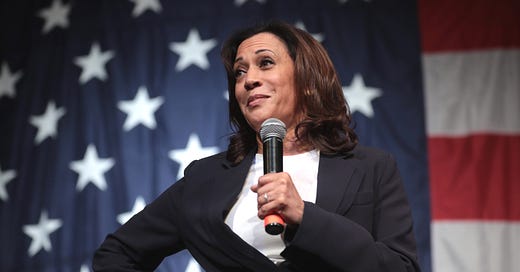Deciphering a debacle at the Globe | Another story you read here first | Trouble ahead for corporate America | Can the YIMBY movement keeps its non-ideological edge? | Hybrid work here to stay as return to the office fizzles | Quick hits |
Promise and peril: The YIMBY movement makes its national debut as Dems adopt its ideas in the presidential campaign, but political minefields await
There’s a loose coalition of people, from builders and economists to twenty and thirty somethings fed up with crazy rents and prices, all dedicated to the idea that the only way to solve the housing crisis is to build, build, build.
And it has spent years now calling for a major rollback in state and local rules that have been widely blamed for bottling up housing production, in Greater Boston and across the country.
So it was a big win for the YIMBY cause when former President Barack Obama, in his DNC speech, called for cutting regulations to boost construction of new homes.
Obama echoed Democratic presidential standard bearer Kamala Harris, who just a week before in a major economic speech, pledged to “take down barriers and cut red tape, including at the state and local levels.”
It was the first time any major presidential candidate had taken up the cause of zoning reform, given that housing has only ever been a minor issue, if that, in past campaigns.
But while the national publicity is priceless in some ways, it does come with certain costs, including the potential to entangle the YIMBY cause in partisan politics.
The Murdoch-owned Wall Street Journal ran an op-ed piece last Wednesday that took the old NIMBY hatchet to to Harris’ YIMBY plan.
And the piece should alarm anyone who believes that A, the housing crisis is one of our top national challenges, and B, the only solution is to build our way out of it.
In “If You Like Your Town, Can You Keep It?,” Robert Showah offers a roadmap for how opponents might distort what is at heart a market-driven solution to one of our nation’s key economic problems, making it look like a flaky, far-left idea.
One of the central ideas behind YIMBYism is setting the housing market free so developers and builders can meet the huge, pent-up demand for homes, condos and apartments of all types and price ranges.
That should be a big selling point for Republicans and libertarians.
But in his Journal piece, Showah, who writes The Patchwork newsletter, conjures up fears of a federal takeover of small towns across the country, an unlikely development but a potent line of attack for conservatives.
And Showah also zeroes in one of the more vulnerable links in the YIMBY movement: The conviction among more left-leaning members of this rag-tag coalition that the main, and maybe only real, solution to the housing crisis is building large, multifamily apartment and condo complexes near train stations and other transit hubs.
“This crowd’s most zealous advocates tend to be upwardly mobile, white-collar urbanites who romanticize dependence on public transit and the high-density spaces depicted in fictional utopias,” Showah writes. “They’re driven by the desire for austere efficiency: the goal of fitting more people into tighter spaces and demolishing any barriers that stand in their way.”
Showah has a point here - even if it is exaggerated. There is a hostility towards the single-family home among some in the YIMBY movement, who see it as an energy hogging, climate atrocity.
Yet, the premise that building new single-family homes is a relic of the past is foolish. After all, all one has to do is look at the sales numbers to know most buyers, if they can swing it, prefer a home to a condo, especially if they have kids or hope to start a family.
The power of the YIMBY movement comes from its pragmatic, non-ideological, can-do spirit.
If it is to survive and not get sucked into the vortex of partisan attacks and politics, it needs to keep it simple and emphasize the need to meet market demand with all types of housing.
After all, not everyone wants to live next door to a train station.
Unanswered questions: Globe has yet to come clean on why it hastily fired one of its star reporters
The region’s leading news organization has yet to provide any answers on what led to the Andrea Estes debacle.
Keep reading with a 7-day free trial
Subscribe to Contrarian Boston to keep reading this post and get 7 days of free access to the full post archives.




